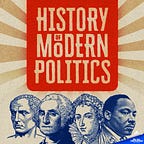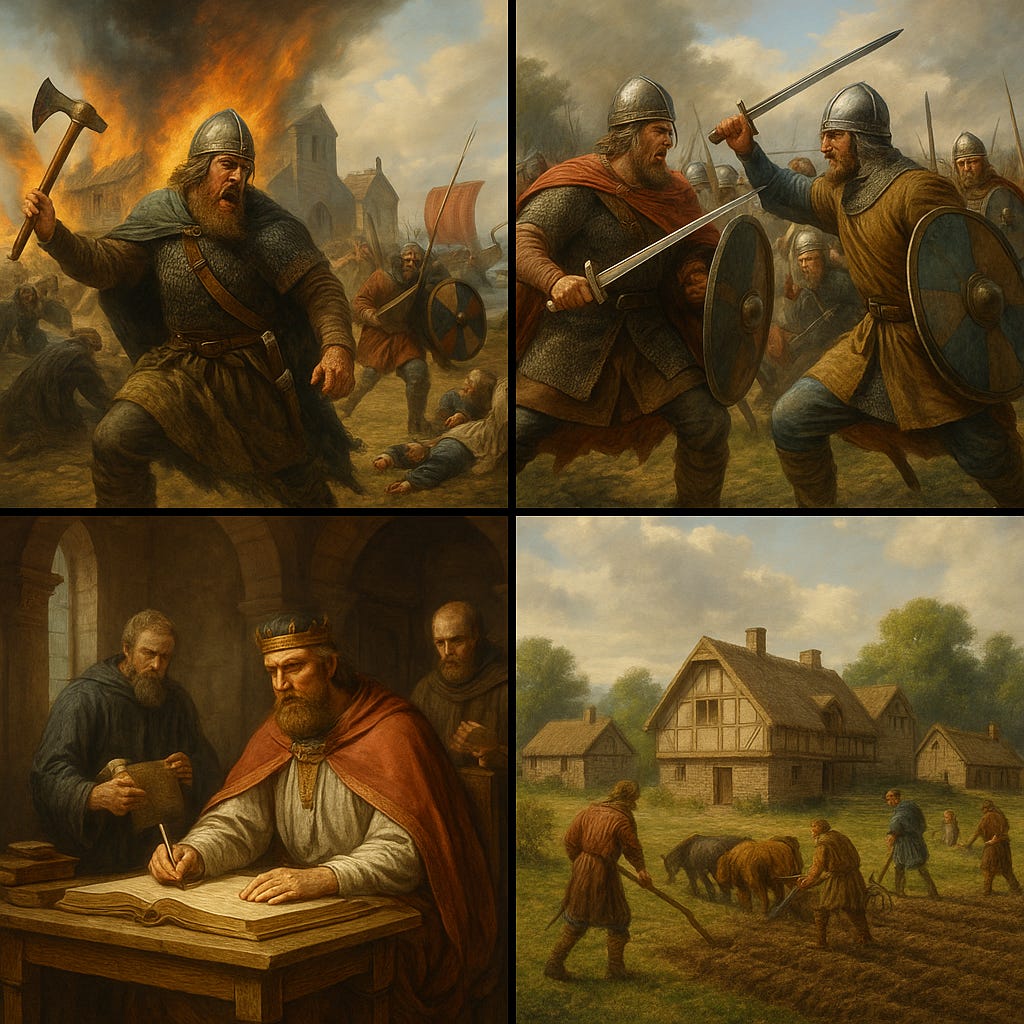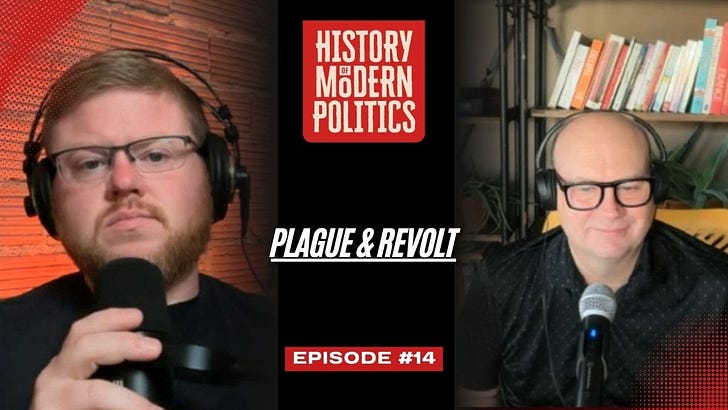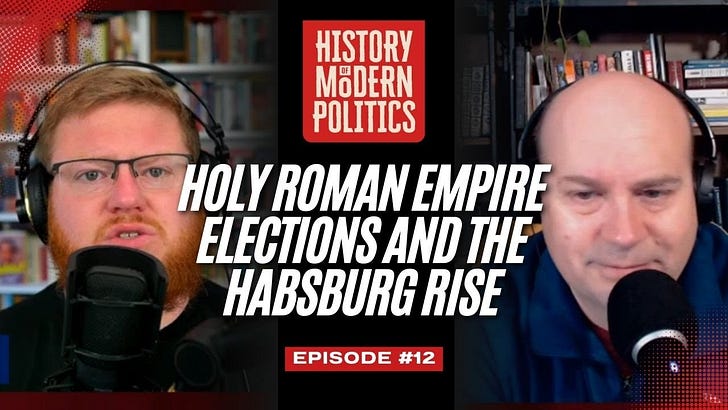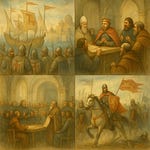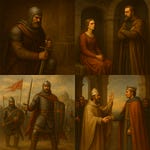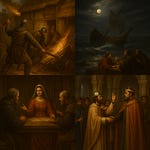The cold open lands at Lindisfarne, 793 CE—the northern monastery where prayer met the sword. The raid’s ferocity stunned Christendom and shattered any illusion of isolation. What begins as terror from the sea quickly becomes a century-long reckoning with a new kind of power—the Vikings, disciplined, mobile, and motivated by more than plunder.
Across the ninth century, the Norse and Danes press deep into the island’s river valleys. Some burn, others bargain, and still others stay. From their settlements in the east—the Danelaw—commerce and culture take on a new rhythm. The once-competing English kingdoms face an existential test: adapt, or disappear.
Out of that storm rises Alfred of Wessex (r. 871–899). His victories over the Great Heathen Army are only half the story. The other half is what he builds afterward: fortified burhs, reorganized levies, codified law, and a program of education meant to pull his people out of illiteracy and despair. Alfred sees rulership not as domination but as stewardship—the king as learner and teacher. It’s governance as moral labor.
Even as he looks inward, Alfred looks outward. Marriage alliances and clerical exchanges link Wessex to the Frankish world, where proto-feudal ideas—land for service, hierarchy for protection—are already reshaping power. The English crown borrows freely: continental advisors, Latin scholarship, and the language of covenant between lord and man. The result is an early hybrid—a kingdom with Roman memory, Germanic custom, and Christian legitimacy.
His heirs finish what he began. Edward the Elder and Æthelstan weld Wessex, Mercia, and Northumbria into a single polity. But the cross-Channel ties endure: dynastic marriages bind England to Normandy, and Frankish models of tenure and loyalty slowly take root in English soil. The foundations of later feudal England are laid, not in conquest, but in imitation and necessity.
My takeaway: Alfred’s greatness isn’t just survival—it’s synthesis. He turns invasion into invention, defeat into design. Where others saw chaos, he built structure: walls, laws, and words that could outlast the sword. In a century defined by fragmentation, Alfred re-learned what Rome once knew—that power endures only when it educates.

